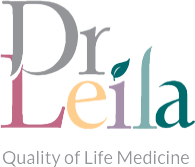
Preventing Inflammation
As a society, we are experiencing the first generation which is projected to live shorter than their parents. Why? Because of the increasing numbers of people with diseases. At the root of all of these diseases is inflammation. Inflammation is what starts us down the slippery path to any medical ailment, including diabetes, heart disease, hypertension, arthritis, and even cancer. Inflammation damages arteries and dysregulates our metabolism, causing obesity and increased blood sugar. Inflammation alters our immune system, making it harder for us to fight off illness and cancer.
WHERE DOES INFLAMMATION COME FROM?
There are several things that lead to increased inflammation. Fortunately, most of them are treatable.
STRESS
Whether it be psychological (time, money, relationships), physical (not enough sleep, over-exertion), or environmental (toxins), stress increases inflammation. Evolutionarily, we were meant to fight tigers, not our continuous, prolonged, ever-constant stress.
VITAMIN D
This most essential vitamin that is made in our skin when we are exposed to sunlight! We now know that Vitamin D is really a hormone that not only is important for bone health, but also modulates the immune system. When we are low in Vitamin D, we have more inflammation.
SEX-HORMONES
Estrogen for women and testosterone for men are our biggest anti-inflammatories. This of course means our own natural, bio-identical hormones, and excludes traditional hormone replacement therapy (HRT). Traditional HRT consists of estrogen and testosterone molecules that are not the same molecule as our bodies produce and therefore cause very different reactions.
ENVIRONMENTAL TOXINS
On a daily basis, we are bombarded with chemicals and toxins that our bodies were not meant to have to deal with and they create inflammation. These include additives and preservatives in food, phthalates in plastics and heavy metals found in gasoline fumes, our fish supply, dental amalgams, cigarette smoke, and industrial pollution.
GENETICS
Each of us has our own genetic susceptibilities – our “weak link” in how our bodies interact with our environment. Increased inflammation for some of us may lead to thyroid issues, for others heart disease. The good news is that we can change the environment our genes are in, thereby changing their expression. We are not doomed to our parents’ diseases.
FOOD ALLERGIES
Last but not least in the inflammation list is food allergies. The most common food allergens include wheat, corn, shellfish, dairy products and peanuts.
HOW DO I KNOW IF I HAVE INFLAMMATION?
In addition to symptoms, there are several tests we can get to determine levels of inflammation. These include a high-sensitivity C-reactive protein, homocysteine, vitamin D – the 25-hydroxycalciferol form, ferritin, fibrinogen, a fasting blood sugar and fasting insulin levels. All of these tests can be performed by your doctor; however, you may need to work with an anti-aging/functional medicine doctor to truly bring them down.








